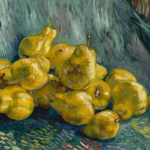Literary fiction is a genre that transcends mere storytelling, offering readers a profound exploration of the human experience. With rich character development, intricate plots, and deep themes, these works challenge us to look beyond the surface and engage with the complexities of life. If you’re searching for that thought-provoking read to add to your bookshelf, here’s a curated list of the top 10 literary fiction books that have captivated readers and critics alike.
1. “To Kill a Mockingbird” by Harper Lee
First published in 1960, this iconic novel addresses themes of racial injustice and moral growth through the eyes of young Scout Finch. Set in the American South during the Great Depression, Lee’s exploration of empathy and understanding remains relevant today. Atticus Finch’s unwavering commitment to justice and integrity has inspired generations of readers.
2. “Beloved” by Toni Morrison
Morrison’s Pulitzer Prize-winning novel delves into the haunting legacy of slavery through the story of Sethe, a formerly enslaved woman who is haunted by the ghost of her deceased daughter. With poetic prose and complex themes of motherhood, love, and memory, “Beloved” is a powerful exploration of the past and its shadow over present lives.
3. “The Great Gatsby” by F. Scott Fitzgerald
Set in the Roaring Twenties, Fitzgerald’s classic tells the story of Jay Gatsby, a mysterious millionaire with a tragic past who pines for unattainable love. This novel is a lyrical critique of the American Dream, exposing themes of wealth, social status, and the hollowness of materialism. Fitzgerald’s exquisite prose captures the era’s essence and the ephemeral nature of happiness.
4. “One Hundred Years of Solitude” by Gabriel García Márquez
A quintessential example of magical realism, Márquez’s epic chronicles the Buendía family over seven generations in the fictional town of Macondo. Through intertwining histories and surreal events, the novel explores themes of solitude, fate, and the cyclical nature of time, creating a rich tapestry of Latin American culture and history.
5. “The Catcher in the Rye” by J.D. Salinger
This groundbreaking novel follows young Holden Caulfield, a teenager disillusioned with the phoniness of the adult world. The narrative’s candidness and unique voice resonate with readers of all ages, as Salinger captures the confusion and angst of adolescence. Themes of alienation, identity, and the loss of innocence are poignantly examined through Holden’s journey.
6. “The Road” by Cormac McCarthy
In this Pulitzer Prize-winning novel, McCarthy presents a post-apocalyptic world where a father and son traverse a bleak landscape, struggling for survival. With sparse yet evocative prose, “The Road” examines the bonds of love and the persistence of hope in the face of desolation, ultimately reflecting on the essence of humanity.
7. “Atonement” by Ian McEwan
Spanning several decades, “Atonement” tells the story of Briony Tallis, a young girl whose misunderstanding of a moment leads to devastating consequences. McEwan masterfully explores themes of guilt, redemption, and the ambiguous nature of truth. The novel concludes with an unforgettable twist, compelling readers to reconsider the nature of storytelling itself.
8. “The Bell Jar” by Sylvia Plath
Plath’s semi-autobiographical novel offers a haunting glimpse into the mind of Esther Greenwood, a young woman grappling with mental illness in 1950s America. Through Esther’s struggles with identity and societal expectations, Plath’s lyrical prose sheds light on the complexities of mental health and the search for self in a constricting world.
9. “Never Let Me Go” by Kazuo Ishiguro
In a dystopian future where humans are cloned for organ donation, Ishiguro’s electrifying narrative follows Kathy, Tommy, and Ruth as they navigate love, loss, and their own mortality. This haunting exploration of ethical dilemmas and what it means to be human raises profound questions about memory, identity, and the moral implications of scientific advances.
10. “Life of Pi” by Yann Martel
This philosophical adventure tells the story of Pi Patel, a young boy stranded on a lifeboat with a Bengal tiger named Richard Parker. Through its fantastical elements, “Life of Pi” explores themes of spirituality, survival, and the nature of storytelling. Martel’s narrative invites readers to contemplate the interplay between faith and reason, making for a compelling and thought-provoking experience.



GIPHY App Key not set. Please check settings